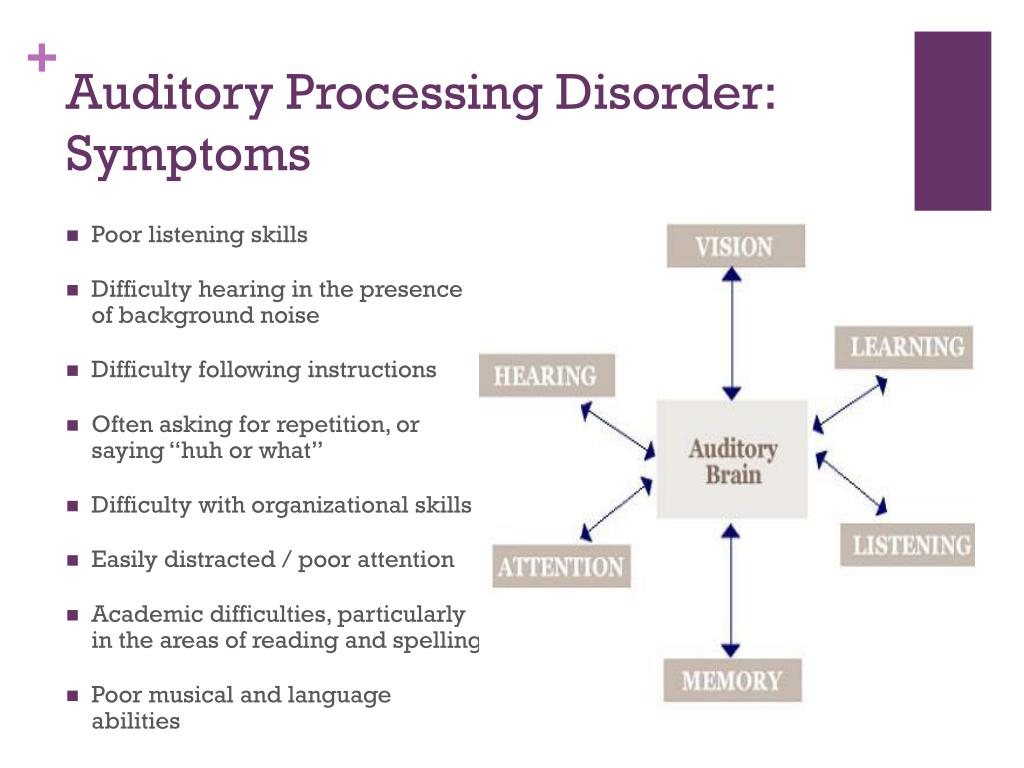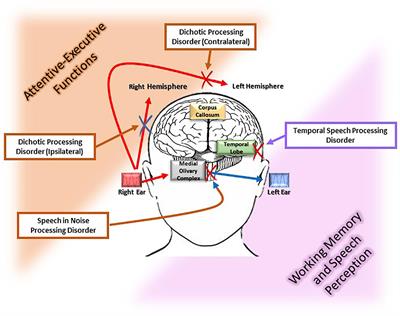

Testing for APD includes hearing, language and speech assessments and cognitive testing which can show how well the child’s brain is processing information. ADHD is impairment of the brain’s “executive functioning” area found in the prefrontal lobe of the brain.Ī child suspected of having APD or ADHD should be given the appropriate tests necessary to determine if they have one disorder or both disorders. Children with Central Auditory Processing Disorder (CAPD) may have perfectly good hearing when tested, but their brain. Instead, children with ADHD are hyperactive, have poor impulse control and procrastinate when given a task to complete. ADHD is a neurodevelopmental condition that significantly impacts life outcomes. Despite wanting to listen to your partner’s requests, you are always in trouble for not paying attention when she asks.
AUDITORY PROCESSING DISORDER IN ADULTS ADHD FULL
However, ADHD is not a central nervous system disorder but a neurodevelopmental and behavioral disorder that does not involve problems with the way the brain processes auditory information. Cognitive control provides us with the ability to inter alia, regulate the locus of attention and ignore environmental distractions in accordance with our goals. This, and other common manifestations of APD may be apparent for adults at home: You listen to the TV at full volume, but still have difficulty understanding what’s going on. Signs of auditory process disorder are often misdiagnosed as signs of ADHD because many symptoms of both conditions overlap. APD is often found in people with attention, language and learning difficulties, such as dyslexia and attention deficit hyperactivity disorder (ADHD). For example, individuals with Attention Deficit/Hyperactivity Disorder (ADHD) may well be poor listeners and have difficulty understanding or remembering verbal information however, their actual neural processing of auditory input in the CNS is intact. Possible causes include: regular ear infections. There are many disorders that can affect a persons ability to understand auditory information.

Children with APD primarily experience difficulty interpreting speech because they are unable to recognize important differences between word sounds. Auditory processing disorder (APD) is thought to be a central nervous system dysfunction involving the way the brain processes auditory input.


 0 kommentar(er)
0 kommentar(er)
